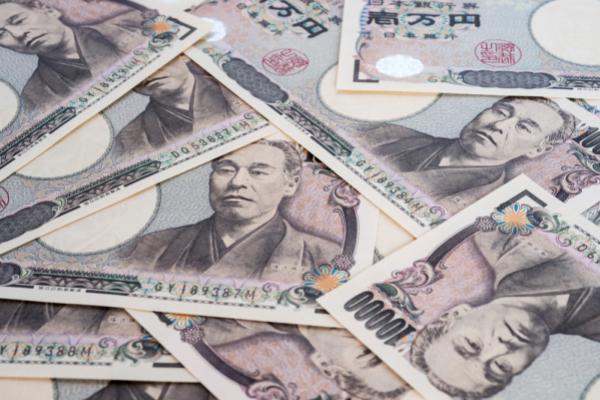China slashes bank reserve requirements, but Chinese stocks tumble as Beijing locks down following latest COVID-19 outbreak
iShares China Large-Cap ETF FXI ETF traded another 1.7% lower on Friday as headlines about COVID-19 lockdowns in Beijing eclipsed China's relaxation of bank reserve requirements.
What happened? Large areas of Beijing were reportedly in lockdown for seven days on Friday after the city reported more than 1,800 new COVID-19 infections on Thursday. Nationwide, China reported more than 32,000 new infections, a new daily high.
Chinese stocks have been battered all year as China continued aggressive COVID-19 lockdowns while the rest of the global economy reopened.
News of the lockdown overshadowed an announcement by the People's Bank of China on Friday that it was cutting the reserve requirement ratio (RRR) for Chinese banks by 0.25%, freeing up 70 billions more for banks to stimulate the country's sluggish economy.
Why it matters: Bank of America economist Helen Qiao said Friday that the RRR cut was positive, but the Chinese bull case at this point concerns COVID-19 only.
"Without allowing people to resume a normal lifestyle, additional fiscal stimulus and monetary easing will generate very little impetus for demand recovery," Qiao said. .
Related Link: US Charges Over a Dozen Chinese Agents with Multiple Acts of Espionage: What You Need to Know< /em>
She said investors should watch the Central Economic Work Conference and the Politburo Standing Committee meeting in December for insight into China's economic policy outlook in 2023 .
Here's how several top Chinese stocks reacted to the news in a shortened session on Friday:
JD.Com Inc JD fell 5.3%. Trip.com Group Ltd TCOM was down 4.2%. Alibaba Group Holding Ltd - ADR BABA fell 3.8%. Baidu Inc's BIDU fell 3.7%. Nio Inc - ADR NIO fell 3.6%.Benzinga's View: China's so-called zero-COVID has been a complete economic disaster for what was one of the world's largest and fastest growing economies. fastest in the world before the pandemic.
It will be very difficult for China to relax its COVID-19 policies any time soon without seemingly admitting that it has taken the wrong approach to the pandemic compared to the rest of the world, so lockdowns could be the new normal in China for the foreseeable future.
Photo via Shutterstock.
© 2022 Benzinga.com. Benzinga does not provide investment advice. All rights reserved.

iShares China Large-Cap ETF FXI ETF traded another 1.7% lower on Friday as headlines about COVID-19 lockdowns in Beijing eclipsed China's relaxation of bank reserve requirements.
What happened? Large areas of Beijing were reportedly in lockdown for seven days on Friday after the city reported more than 1,800 new COVID-19 infections on Thursday. Nationwide, China reported more than 32,000 new infections, a new daily high.
Chinese stocks have been battered all year as China continued aggressive COVID-19 lockdowns while the rest of the global economy reopened.
News of the lockdown overshadowed an announcement by the People's Bank of China on Friday that it was cutting the reserve requirement ratio (RRR) for Chinese banks by 0.25%, freeing up 70 billions more for banks to stimulate the country's sluggish economy.
Why it matters: Bank of America economist Helen Qiao said Friday that the RRR cut was positive, but the Chinese bull case at this point concerns COVID-19 only.
"Without allowing people to resume a normal lifestyle, additional fiscal stimulus and monetary easing will generate very little impetus for demand recovery," Qiao said. .
Related Link: US Charges Over a Dozen Chinese Agents with Multiple Acts of Espionage: What You Need to Know< /em>
She said investors should watch the Central Economic Work Conference and the Politburo Standing Committee meeting in December for insight into China's economic policy outlook in 2023 .
Here's how several top Chinese stocks reacted to the news in a shortened session on Friday:
JD.Com Inc JD fell 5.3%. Trip.com Group Ltd TCOM was down 4.2%. Alibaba Group Holding Ltd - ADR BABA fell 3.8%. Baidu Inc's BIDU fell 3.7%. Nio Inc - ADR NIO fell 3.6%.Benzinga's View: China's so-called zero-COVID has been a complete economic disaster for what was one of the world's largest and fastest growing economies. fastest in the world before the pandemic.
It will be very difficult for China to relax its COVID-19 policies any time soon without seemingly admitting that it has taken the wrong approach to the pandemic compared to the rest of the world, so lockdowns could be the new normal in China for the foreseeable future.
Photo via Shutterstock.
© 2022 Benzinga.com. Benzinga does not provide investment advice. All rights reserved.
What's Your Reaction?















![Three of ID's top PR executives quit ad firm Powerhouse [EXCLUSIVE]](https://variety.com/wp-content/uploads/2023/02/ID-PR-Logo.jpg?#)







